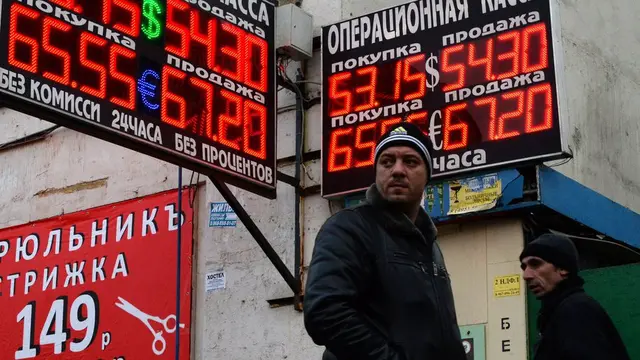When American households still have vivid memories of struggling to make their ends meet in the worst financial crisis in decades, a new recession is seemingly around the corner.
Lackluster industry performance, evaporating stock market value, turbulent global economy and fears of another financial shock are giving market watchers a bigger sway to tell, the next recession is coming closer than expect.
The U.S. economy sharply slowed to 0.7 percent in the fourth quarter last year, as the stronger U.S. dollar, weak consumer spending and global market meltdown weigh on growth.
According to data tracked by Moody's Analytics, the energy industry meltdown has sent Alaska, North Dakota, West Virginia and Wyoming into recession. Three other states are at risk of prolonged declines.
Joseph Lake, a researcher with the Economist Group, said, nationally, there is no imminent risk of recession, citing improvement in the job market and household balance sheets.
Manufacturing and energy sectors are hard hit by stronger U.S. dollar and falling oil prices. But they are too small to drag down the overall economy.
"While Japan and Euro Zone have gone to negative interest rates, the U.S. really stands out as the beacon of a strong economy in this turbulent time," Lake noted.
Although the U.S. has not entered into recession, economists warned the next recession is approaching faster than expected.
Since the end of the Second World War, the U.S. economy has witnessed 11 recessions and recoveries. On average, the consecutive economic expansion spans five years.
Healing from the subprime crisis in 2009, the U.S. economy has entered into the sixth years of business cycle expansion.
Lake argued the next recession is probably closer than the last one, and the chance of a recession in the next two to four years is more than 50 percent.
Gail Fosler, President of the Fosler Group LLC, said there is a "100 percent certainty" of a recession between now and 2018, as she foresees that a financial shock is inevitable.
A few investment banks have joined the chorus of boom-bust talk. Deutsche Bank projected the odds of a recession this year have risen to 40 percent.
JP Morgan predicted the chances of a recession before the end of 2017 now sit at 67 percent and that chance within three years sitting at 92 percent.
As recession fears mount in the U.S., Federal Reserve Chair Janet Yellen conceded there's a chance of a downturn ahead.
"There is always some chance of recession in any year," she said when testified at a congressional hearing early this month.
"But the evidence suggests that expansions don't die of old age, " she added.
The changing outlook prompts Fed officials to voice more caution on hiking interest rates further.
At the Fed's latest monetary policy meeting, officials agreed that uncertainty had increased, which increased the downside risks to the outlook.
"Inflation is not likely to pick up substantially until the second half of the year," Patrick Harker, president of the Federal Reserve Bank of Philadelphia, said last Tuesday.
"It might prove prudent to wait until the inflation data are stronger before we undertake a second rate hike," he said.
His view was echoed by Eric Rosengren, president of the Federal Reserve Bank of Boston who said "If inflation is slower to return to target, monetary policy normalization should be unhurried."
He contended a more gradual approach is an appropriate response to headwinds from abroad and financial volatility.
Last December, the Fed raised the federal funds rate for the first time in nearly ten years as it sees the economy is good enough to withstand a little higher borrowing costs.
Analysts said the drastically changing economic outlook reflected the underlying weakness of the U.S. recovery which was cosseted by the easy monetary expansion. Enditem
 简体中文
简体中文

